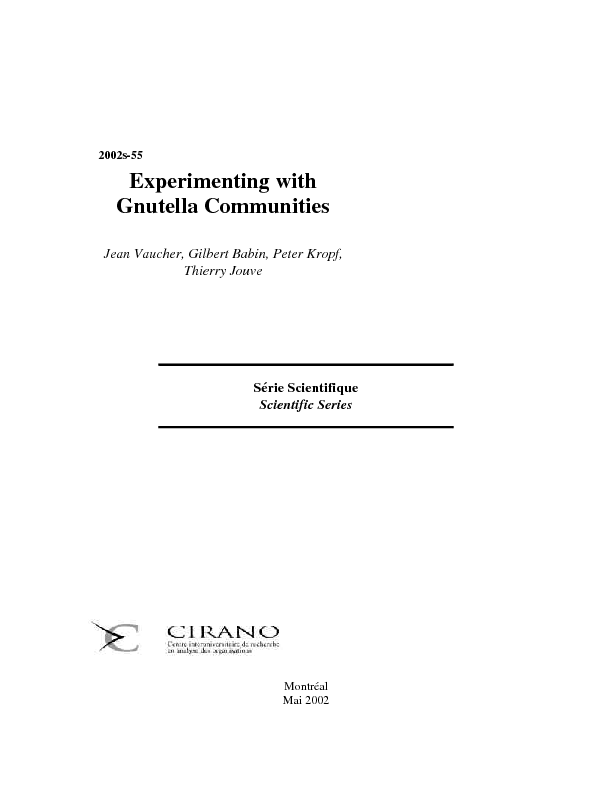Experimenting with Gnutella Communities
Computer networks and distributed systems in general may be regarded as communities where the individual components, be they entire systems, application software or users, interact in a shared environment. Such communities dynamically evolve with components or nodes joning and leaving the system. Their own individual activities affect the community's behaviour and vice-versa. This paper discusses various experiments undertaken to investigate the behaviour of a real system, the Gnutella network, which represents such a community. Gnutella is a distributed Peer-to-Peer data-sharing system without any central control. It turns out that most interactions between nodes do not last long and much of their activity is devoted to finding appropriate partners in the network. Good connections lasting longer appear only as rare events. For example, out of 42,000 connections only 57 hosts were found to available on a regular basis. This means that, in contrast to the common belief that this kind of peer-to-peer networks or sub-communities are always large, they are actually quite small. However, those sub-communities examplify very dynamic behaviour because their actual composition can change very quickly. The experimental results presented have been obtained from a Java implementation of Gnutella running in the open Internet environment, and thus in unknown and quickly changing network structures heavily dependent on chance.
[ - ]




